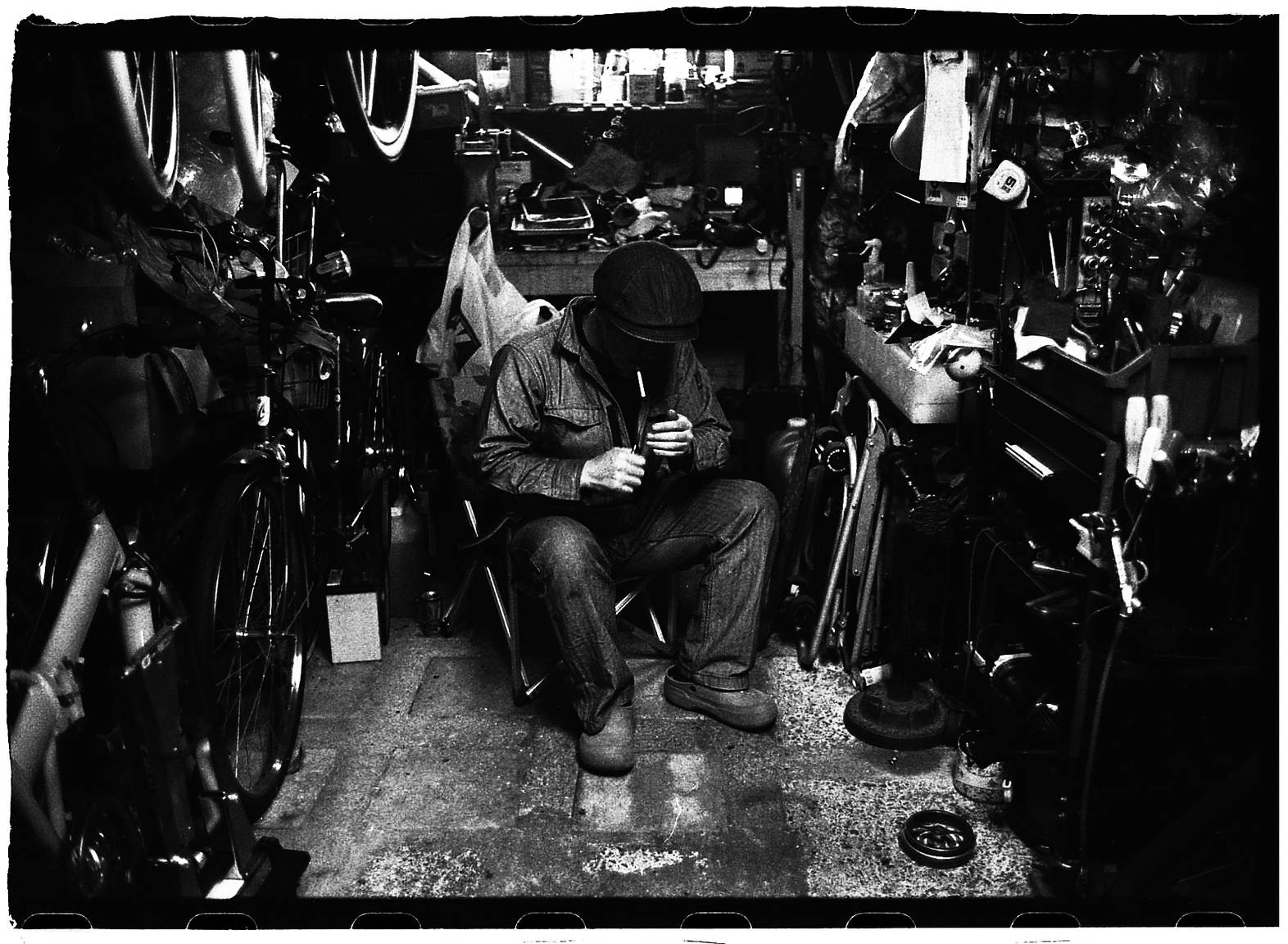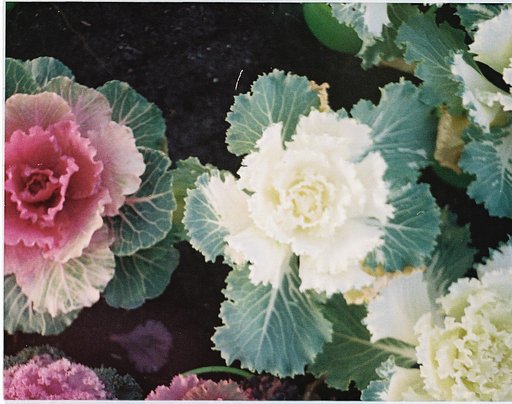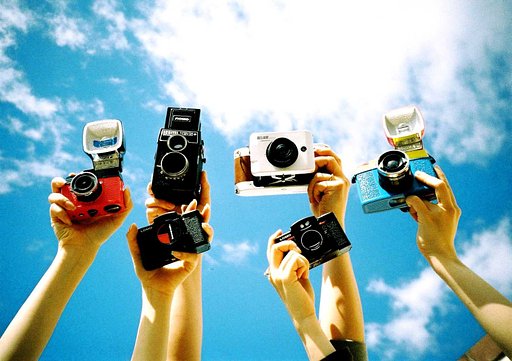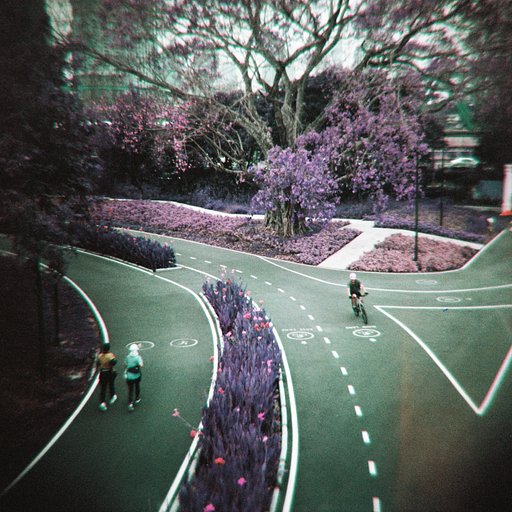Collecting Experiences: An Interview with Keisuke Iguchi
15 Share TweetTraveling and photography go hand in hand. Rather than a tourist or a photographer, Keisuke Iguchi, who had been to almost 75 countries in the past 10 years, prefers to be called as an experience collector.
His photographs are built upon earned respect and mutual trust. In a foreign place he acts not as a spectator who quietly stands in the corner and steals away frames of its inhabitants’s life but as an involved participant. Before clicking the shutter, he learns the ways of the people first. What makes them tick. How they go about their everyday life. He lingers and patiently waits until the camera is no longer an intrusive instrument but a welcome guest. Only then does he take their photographs.
His upcoming photo book, “Politics is for Losers,” tells the stories of the beautiful souls he met throughout his decade-long journey.

Please introduce yourself to the Lomography community.
My name is Keisuke Iguchi (井口佳亮) and I’ve been shooting with the LC-A since I was 14. I was born in 1983 so I’ve been love with Lomography for 18 years. Back in the late 1990s, when I was a junior high student in Tokyo, Japan, there were monthly magazines called “Studio Voice” and “Relax” that focus on youth subcultures and I was a huge fan of them. I don’t remember precisely but they always pay a huge compliment to the LOMO LC-A and introduce it as a "super stylish camera” despite its many quirks.
One day, my best friend Seiji got a brand new LC-A as a birthday present and brought it to school. He showed me how to use it and even loaned it to me for a few days. As far as I remember that was one of my first encounters with the creative and experimental world of photography. Few months later, I took my grandmother to the department store and begged her to buy an LC-A for my birthday. Taking pictures with it and a grainy Ferrania Solaris 800 film (RIP) was my favorite recipe. Both cool and warm colors came out so vibrant but nostalgic at the same time. Every time I get prints from a one-hour photo lab I feel like I took a walk on a rainbow to the past with Sofia Coppola and came back to the present with Michel Gondry and a backpack full of imagination. It’s hard to describe but it’s something like that.
How long have you been taking photographs? Why did you choose film as your medium?
I don’t know. I’ve never counted. One big reason why I shoot film is because I love spending time in the darkroom. I hear people compare digital to MP3 and film to vinyl. To me, film photography is more like a cassette tape.
The high-quality digital printing technologies have a “better” resolution than gelatin silver printings, right? Digital processing can be cheaper and everything goes much faster than the traditional darkroom process. But when I hop on the train in a big city and find someone sitting and listening to the music with a cassette tape, holding a Walkman in hand, and quietly tripping, it just looks cool to me. He’s not listening to the Billboard Top 10 Hits for sure. The way he smoothly changes his tapes is like how a Lomographer rewinds and loads a 35mm film on the LC-A. No offense to digital users. Please don’t get me wrong.
How would you describe your photography style?
I have no idea. I don’t think about it too much. “Don’t think too much.” That’s my style, if I should say.
What do you usually take photographs of? What is it about your subjects that draw you into photographing them?
People. People around me. Ordinary people with ordinary life. No drama. Seeing people happy and smile makes me happy and smile, too. I’m a simple guy. It makes me want to photograph the moment when someone’s in a good mood. But it’s not as easy as it sounds. You just can’t take a photograph of these moments unless you are permitted or the situation welcomes it. Only when you are allowed to share the happy moment with them that you are allowed to take a shot of it. You have to be open to them and earn their trust first. It’s the fun part of taking a good portrait, I believe.
You do traditional black and white developing and cyanotype printing. What is the pull of traditional darkroom processes? What is the importance of these processes in this digital age?
I do albumen and wet-plate collodion, too. You don’t need a darkroom to make cyanotype and albumen printings but I do love old-school darkroom processes. Whenever I see images appearing slowly on paper under the red light, it makes me feel like I’m watching a movie about life. Sometimes, the process makes me feel very alone but not lonely at all. It’s all good.
Having a trusty camera is also very important to me. You can’t go to the African deserts or the Amazon rain forest with a very sensitive, high-tech digital camera. I don’t want to buy a new camera every year. I can’t afford to. Therefore, I chose a simple and tough film camera that works without batteries. I’ve been using this Leica M4-P for about nine years. It has been overhauled by Mr. Noriyoshi Tajika (田鹿宣義) a couple of times. This superman owns a tiny factory in Ginza, Tokyo. It is said that M4-Ps are made in Canada and are inferior to other German-made Leica M analogue series. But once it has been repaired by Mr. Tajika, you can forget all about it. Each time I pull the advance lever it works so smooth like silk. He doesn’t charge a lot like others do. He’s a legendary artisan like Osamu Tezuka’s “Dr. Black Jack.” I’ve been abusing my camera and it looks a piece of shit but it’s still very accurate.

Leica is like a woman. The more it ages, the more beautiful it gets. It’s made of heavy metal and can be used as a weapon when you encounter crazy people in the pub at night and you have to fight. Film photography is still good in so many ways.
Please tell us about your book. What’s the inspiration behind it?
My book’s title is “Politics is for Losers”. For me, politics means spending a whole day trying to get Facebook likes or posting selfies on Instagram everyday and insisting that your life is better than everyone. That’s what politics is to me and it’s strictly for losers. We should love and respect each other instead of competing about something we don’t really need to. I’m tired of being a “Look at me! Look at me! Look at me!” type of person.
I want to be honest. I was born in Tokyo and was raised in New York. But talking to people in so-called “Third World” countries and taking pictures of their daily lives made me realized that I’ve been running West looking for sunrise in this human race. And now I decided to get out.
The beautiful “losers” whom I met on the road are the reason that I got into traveling and taking photos in the first place and they are a constant source of inspiration.
The songs “Crazy As A Loon” by John Prine and “The Kind You Can’t Afford” by Madeleine Peyroux inspired me, too. It’s time for me to make a book that says “f**k you” to the system.
Which countries have you been to so far? What was the turning point that pushed you to explore the world?
I don’t remember precisely but maybe I’ve been to 70 to 75 countries. When I started backpacking around the world, I counted every nation that I’d visited and I felt so happy every time I see my passport filled with different stamps. But I stopped counting after visiting around 30 countries. It doesn’t matter that much to me anymore. So, I don’t know exactly which countries I’ve explored so far.
When I was 16 or 17, I watched Jim Jarmusch’s movie Stranger than Paradise at my friend Seiji’s house after school and I guess probably that was the biggest turning point that pushed me to travel the world. Back then, Charles Bukowski’s and Jack Kerouac’s books were like bibles to me and Tom Waits’s vinyls were like hymns. Japanese artist Kunichi Nomura’s book Sputnik was mind-blowing, too.
How did travelling shape the narrative of your book? Consequently, how did it influence you as a photographer?
I’ve never considered myself as a photographer. I’m just having fun photographing every time I travel and I’d rather be considered as a journeyman, an experience collector, or a poet. I love writing, too.
It doesn’t matter much to me how many countries I’ve visited as long as we’re living on same planet. Traveling makes my thought wider and more global. I love getting in touch with people whom I never met and going to places that I’ve never visited. I’ve been traveling around, taking photos, and making postcards and sending them to friends for a few years now. I feel it’s time to make a book about it. That’s all. No big reason.
Among the countries you’ve been to, which was the most memorable to you?
I can’t compare! It’s like asking: “Which do you like better: your mom or your dad?” I can’t answer it. Big cities, wilderness, and the places in between, I love and respect them all in so many different ways.
Any challenges you faced while on the road?
Some films were badly fissured and destroyed and I couldn’t print them as good as I expected. For instance, I developed some of them in a train toilet during a night trip in Vietnam. I tried processing films in a river when I was camping in China. But every smudges and blotches turned out to be good memories in the end.
The worst thing that happened was when I was traveling in East Coast Australia. I was so drunk and I left all the 35mm negatives in the Greyhound bus and now they’re gone forever. Sh** happens.
Recently I bought a used Mercedes van and started to live in it. There’s an enlarger in it. My friend Tim says it’s like a “rolling darkroom.” Sounds nice, isn’t it? See this picture and you’ll find my Leica Focomat 1C on the upper left.

What’s the most important thing you’ve learned throughout the process of creating this book?
Materialism and consumerism suck. I’ve met tons of financially poor but mentally rich people while I was traveling. Having less is the key for me. I’m not a hardcore vegan minimalist but I’m tired of this capitalist society. I was born and raised in Tokyo. I moved to Brooklyn when I was 21 and later lived in Sydney and London. I didn’t think too much about where my real happiness comes from. I decided to get out of the city life for a while and live in my darkroom van. I hope to see someone like me on the road and make new friends. And probably take pictures of them, make prints in my van, and give it to them. That’s my newest dream.
Which place would you like to visit in the future?
Mars.
Parting words?
I’d like to thank Mr. Kenshi Daito of Tokyo Alternative Photography and Mr. Tim Moog of Silversalt for teaching me advanced alternative photography techniques and Seiji Hatano for always being my best friend. A big shoutout to Tuscita, Tsuruhara-san, Stan-kun and Noppo-chan, Fromoz crew, and the people at Nishitokyo Post Office, Studio 5, and Ito Photo. Yujen, I don’t know where you are and what you’re doing now but I hope you’re well. Last but not the least, thank you very much Eunice.
If you’re interested to see more of my work, have a glimpse of my life at my blog.
To pre-order “Politics is for Losers” or receive a notice when the book is published, contact Keisuke Iguchi via keisiguchi@gmail.com. All images by Keisuke Iguchi are used with permission.
2016-05-06 #people #lifestyle #keisuke-iguchi Eunice Abique の記事



































コメントはまだありません